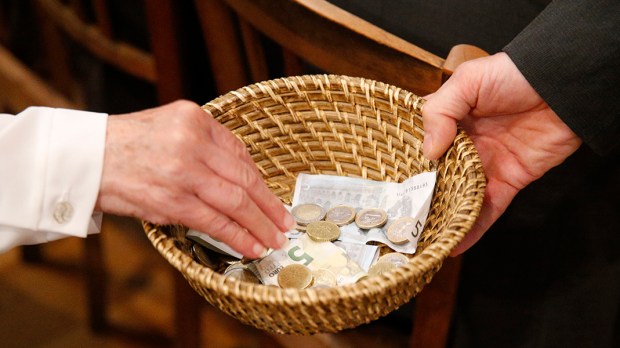Did a Republican-sponsored effort to reduce Americans’ tax burden have a negative effect on charitable giving?
Charitable giving by individual Americans in 2018 suffered its biggest drop since the Great Recession of 2008-09, according to an annual report on charity. Part of the reason, says the Giving USA report, was Republican-backed changes in tax policy.
The report, released Tuesday, said individual giving fell by 1.1%, from $295 billion in 2017 to $292 billion last year, the Associated Press reported. It ended a four-year streak of increases, and was the largest decline since a 6.1% drop in 2009.
The drop in individual charitable giving in 2018 came in spite of a relatively strong economy. But a new federal tax policy that doubled the standard deduction likely led to many American households opting for that rather than itemizing deductions on their federal returns.
“Whenever there’s a major tax policy change like that, it has an effect.” said Rick Dunham, chair of Giving USA Foundation, which publishes the annual report. It is researched and written by the Indiana University Lilly Family School of Philanthropy.
More specifically, church giving is also down, due in part to the clergy sex-abuse scandals. AP says:
Giving to religion—perennially the biggest sector—is estimated to have declined by 1.5% in 2018 (a decrease of 3.9% adjusted for inflation), with a total of $124.52 billion in contributions. Una Osili, an associate dean at the Lilly philanthropy school, said giving to religious institutions has been lagging behind other sectors for several years. Reasons including declining attendance at church services and a rising number of Americans not affiliated with any particular religion. For the largest U.S. denomination — the Roman Catholic Church — a long-running clergy sex-abuse crisis also has taken a financial toll. According to a recent Pew Research Center survey, about one-fourth of U.S. Catholics have decreased donations to the church because of the scandals.
Donations to foundations, to education, and to public-society benefit organizations—groups that work on issues like voter education, civil rights, civil liberties and consumer rights—also were down. Meanwhile, donation to nonprofits involved in international affairs and environmental or animal-welfare issues were up.
Stacy Palmer, editor of the Chronicle of Philanthropy, suggested that the tax law changes would have relatively less impact on charities that rely on wealthy donors, and greater impact on social-service providers and other charities that get broad support from middle-class Americans.
“Charities who depend on them are really worried,” she said.

